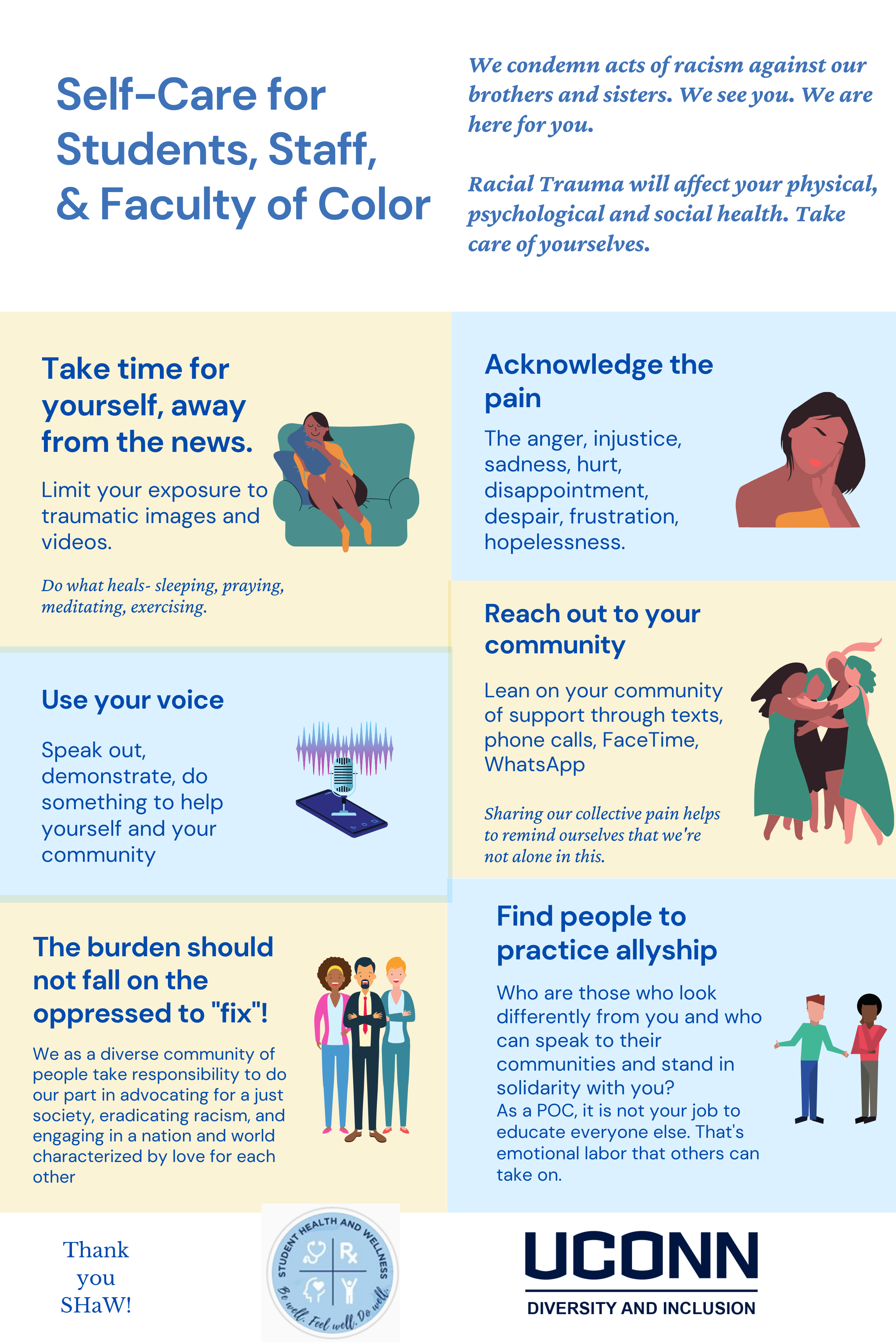This page offers digital resources for BIPOC folks and communities healing from racial discrimination, trauma, oppression, and legacies of colonialism. The resources are incomplete and represent only a starting point. In the near future, we hope to expand this page based on student, faculty, staff, and additional stakeholder input.
For students, faculty, and staff looking for counseling services, the CityU Counseling Center provides offers services for a nominal fee – often as low as $5 to $25 per session. For clients who lack adequate insurance coverage, have exhausted benefits or cannot afford co-payments, the counseling center is able to help.
The University of Connecticut's Office of Diversity and Inclusion created the infograph below with additional support from UConn SHaW’s Diversity, Health Equity, and Inclusion committee. The original file can be found on their Racial Justice Resources page. They have graciously given us premission to post the infograph with credit. The infograph provides 6 concrete acts students, staff, and faculty of color can take to begin healing from racial trauma.

Below is a collaborative playlist on Spotify titled "Grief and Honor." Currently it's 51 songs totalling to 3 hours and 30 minutes. The playlist spans a range of genres and features an array of BIPOC artists, from classic R&B and Gospel, like Marvin Gaye and Mahalia Jackson, to Hip Hop and contemporary R&B, such as Public Enemy and Jamila Woods.
We recognize that there are a plethora of resources for BIPOC self-care and healing. Below is a short list of resources, including articles, guides, hotlines, and organizations. We acknowledge that it's incomplete and hope to add more resources based on community recommendations over the coming months.